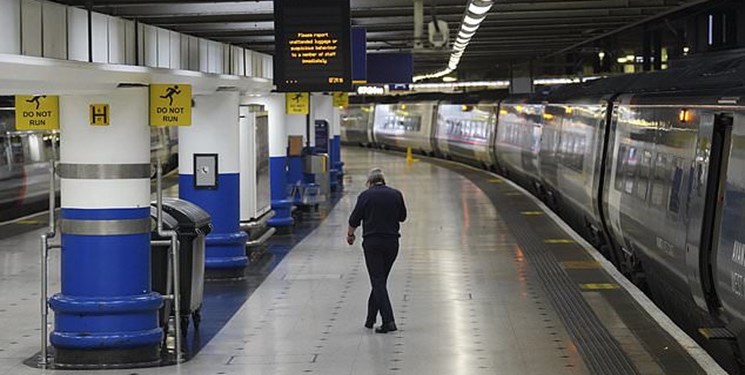Paralyzing strikes continue in England.
As labor strikes continued in England, thousands of railway and transport workers staged crippling strikes.
Thousands of British rail and rail transport workers have paralyzed rail services across the UK with a new round of strikes in the country.
This round of strikes was implemented following the escalation of disputes between trade union representatives and the authorities in England over the handling of employee demands, including in relation to the increase in salaries and working conditions and the worsening of the cost of living crisis.
As a result of this strike, only one out of every five trains in the country was active. In recent months, these employees have carried out several rounds of strikes in protest against the non-fulfillment of their demands regarding wages and working conditions in England. The strikes that intensified on Thursday continued on Friday and will continue on Saturday. Strikes are expected to once again disrupt train travel across England.
Mick Lynch, the head of the British Road, Maritime and Rail Transport Union, said that British railway employees, like many public sector employees in this country, are struggling to adjust their lives to the increase in food and fuel prices.
After the official British statistics showed that the inflation rate in this country on Wednesday reached the highest level in the last 40 years equal to 10.1% in July and above the forecast of 9.8% by analysts, Mick Lynch pointed to the possibility of more widespread More and more strikes warned of what the effects of the “Solidarity Action Wave” was having on different sectors in England.
British postal, port and aviation unions have also announced their strike plans amid the damage to salaries in the current cost of living crisis in England. In Scotland, waste collection and recycling workers in the capital city of Edinburgh began an 11-day strike on Thursday to protest a proposed 3.5% pay rise by the authorities to manage their living bills. Not enough.
“People in this country are fed up with low wages,” Lynch said at a London train station on Thursday. Millions of people have not had a proper legal settlement for decades. Therefore, government employees in health care, education, transportation and all kinds of sectors have been exposed to wage cuts and rampant inflation.
He blamed Britain’s Conservative government for adopting an anti-union program and prolonging labor disputes in the country, saying British rail workers would not strike until they reached a deal with privately owned railway companies. But they are heavily influenced by government laws.
Lynch said that the British authorities have used taxpayers’ funds to save companies so that their income is not lost due to strikes, and as a result, managers have no incentive to negotiate.
.









